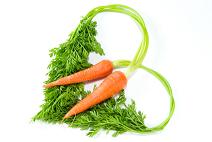 February turns our thoughts towards love, the condition of our hearts, and the health of the organ that makes our bodies go strong. The heart is the central reason our bodies “tick.” Let’s take a look at what truly makes our heart tick, shall we?
February turns our thoughts towards love, the condition of our hearts, and the health of the organ that makes our bodies go strong. The heart is the central reason our bodies “tick.” Let’s take a look at what truly makes our heart tick, shall we?
The heart is a muscular organ which pumps blood throughout the blood vessels of the circulatory system. The blood pumped provides the body with oxygen and nutrients, and also assists in the removal of metabolic wastes. The heart is approximately the size of your fist. This ever-pumping organ is divided into four chambers: upper and lower atria and ventricles, both with right and left compartments. Its main function is to transport blood to, through and from the heart to the rest of the body. It’s an intricate timed system contracting at a rate of around 72 beats per minute, at rest (for a normal weight with no pressing health related issues.) Exercise temporarily increases this rate, but lowers resting heart rate in the long term, and is good for heart health.
One of the silent killers to this main organ are the many forms of cardiovascular disease (CVD) and are an all too common cause of death globally. CVD accounts for 30% or more of death related issues. Of these deaths, more than three quarters were due to coronary artery disease and stroke. Risk factors include: smoking, being overweight, not enough exercise, high cholesterol, high blood pressure, and poorly controlled diabetes among others causes. It’s a fact, too, that over half the number of heart attacks can occur in people with normal cholesterol levels.
So, now we know the mechanics of the heart and some dangerous diseases that plague it. But let’s look at how to keep the heart healthy. Everything you put into your body, good and bad, affects the one organ that helps keep your body ticking and moving along to go about your daily activities.
A healthy diet and lifestyle are your best weapons to fight for good heart health. It’s not as hard as you may think! Remember, it’s the overall daily pattern of your choices that count. Here’s some simple changes with long-term benefits and will give you a BIG “E” for effort in the health department.
Choose these good heart health options:
- Exercise: Use up at least as many calories as you take in. By knowing how many calories you take in for your lifestyle helps in knowing how many calories you need to expend to maintain your weight. Aim for at least 30 minutes of moderate physical activity on most days of the week or — best of all — at least 30 minutes every day. Regular physical activity can help you maintain your weight, keep off weight that you lose and help you reach physical and cardiovascular fitness. If you can’t do at least 30 minutes at one time, you can get creative and do 5 -10 minute sessions a couple times throughout the day. My Visibly Fit™ exercises are a realistic approach to fit exercise into your daily routine.
- Eating: Don’t eat more calories than you know you can burn every day. Increase the amount and intensity of your physical activity to match the number of calories you consume. Eat a variety of nutritious foods. The overall goal is to get healthy, not skinny. Check out EatLifeIn to make your life even easier.
- Emphasize: Use different components of your eating plan and exercise to compliment not compete with good choices. Just because you work out hard one day doesn’t give you the excuse to take in a large amount of calories to compensate for those calories burned. Consistency is key in shedding unhealthy weight and maintaining good over-all heart health. Emphasize on eating foods that compliment your health like organic fruits, vegetables, legumes, seeds and nuts, while ditching the red meat, dairy, sugary foods and beverages.
- Eye-on-it: Keep your goals in front of you. Nutrition is key to a healthy lifestyle and it takes consistency. Keep a journal on your food and water intake and the exercise you practice daily. This will allow you to monitor and keep an eye on your progress.
The number of calories you should eat daily is based on your age and physical activity level and whether you’re trying to gain, lose or maintain your weight. You could use your daily allotment of calories on a few high-calorie foods and beverages, but you wouldn’t get the nutrients your body requires to be healthy. So, why go there? Those are just wasted calories in my mind. Not to mention, the damage that the toxic ingredients of man-made foods do to the body…they are a huge culprit for disease. Remember, why do you want to make the good choices that get you towards your goal in the first place? Keeping an eye on that should help you keep an eye on the prize of your goal.
- Eliminate: Eliminate processed fats and sugars from your food options. Cut back on foods containing partially hydrogenated vegetable oils to reduce trans-fat in your diet. To lower cholesterol, reduce saturated fat to 5 to 6 percent of total calories. Cut back on beverages and foods with added sugars. Choose and prepare foods with little or no salt. If you drink alcohol, limit your intake. Also, don’t smoke tobacco — and avoid secondhand smoke.
Watching what you take in, knowing how it balances together, and acting on this knowledge will change your behaviors. The things in which you consume fuel your body’s heart (for good or bad). It’s entirely up to you to enhance your heart health and to embrace the healthy season you want to walk into. But, the only way to get there is through every bite, sip, thought, and action. When everything clicks together well then the heart ticks well.


